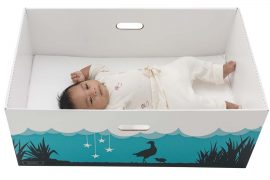By Natasha Chant
I have been an Early Childhood Teacher for over 20 years, my niche being the infant and toddler age group. I have been passionate about caring for these age groups as far back as I can remember. Even at the young age of 8, family and friends would comment on my natural aptitude with their care. My love for infants and toddlers was always reciprocal, with them being drawn to my nurturing and respectful demeanour towards them.
Through my experiences in working with infants and toddlers, I have been supporting them with their sleep, which is such an integral part of their early development. There is a small amount of learning around sleep that is learnt through our teaching degrees and our on-the-job learning. However, after attending a professional development course, I was exposed to the world of sleep consultancy, and I instantly knew this was the passion I wanted to pursue.

When I had my first child, I was searching for some support with his sleep when I managed to find some professionals to help. They recommended the ‘cry it out’ method. This didn’t sit well with me; it was too distressing for my baby and myself. As a mother, your intuition can serve you really well and if something doesn’t feel right, it probably isn’t. I knew from that moment that there was not enough support or information out there for parents that were in the same boat as me.
Fast forward to now and there is a lot more information out there, however due to the growth of the internet, there are a lot of conflicting ‘facts’. Some common things I hear said to parents regarding their children’s sleep are:
- Oh, just let them cry, it won’t hurt them.
- They are just manipulating you.
- You should put them down, so they learn to sleep on their own.
- Why isn’t your baby sleeping through yet?
- You are spoiling your baby.
- Is she/he a good baby?
All of these types of comments are so disheartening and discouraging to parents who want to do the very best for their precious bundle of joy. Some of this pressure and misinformation can lead to parents feeling like they need to go against their natural instincts and what their heart is telling them.

Some infants and toddlers naturally sleep well, while others need a little more nurturing support to help them learn how to sleep and resettle upon waking. Infants are actually wired to wake throughout the night, especially during their early months. This is an important safety mechanism to guard against SIDS. When infants and toddlers are moving through sleep cycles, they require the skills to learn how to resettle and go back to sleep. If baby is going to sleep being rocked, patted or fed to sleep, then these are the tools they know and trust to get back to sleep, and this is when Mum or Dad are up every couple of hours implementing their technique to get baby back to sleep.
We can teach them using an age-appropriate technique that also fits well with the parenting style to support settling and re-settling skills. There are several aspects to an optimal sleeping environment for infants and toddlers. These can include comfort, support to resettle, thoughtful spaces that are set up for their individual sleep needs, respect for them and their current developmental stage, and an understanding of their comprehension, which is often underestimated.











